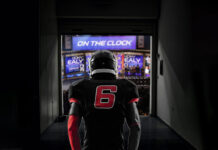Natasha C. Pratt-Harris is an assistant professor in the department of sociology and anthropology at Morgan State University in Baltimore. Dr. Pratt-Harris is a graduate of the University of Maryland at College Park. She holds a master’s degree in criminal justice administration from the University of Baltimore and a Ph.D. in sociology from Howard University. Her research and teaching interests include juvenile justice (esp. justice for the falsely accused), disproportionate minority contact, Black inmates, institutional research at HBCUs, victimization, technology and deviance, and sexuality and deviance.
In this brief commentary, Dr. Pratt-Harris explores how the Trayvon Martin case will impact her teaching this fall.
When I initially began a full-time post as a college professor, it was on the brink of the September 2007 rallies in support of the Jena 6, a group of Black teenagers who were accused of attacking a White classmate in Louisiana. At the time, I was a lecturer who was knee-deep in doctoral research where I compared Black male college graduates to black males who had been released from prison. Our students organized an on campus Jena 6 rally, while we acknowledged the march that many students, faculty, and others were involved with in Jena, Louisiana. At our campus’ Jena 6 rally, I stood behind the podium on September 20th, 2007 and shared facts and statistics about the representation of black males in the criminal justice system. “Black males do not represent the majority of those under criminal justice representation, they are represented disproportionately! There are more Black males 18-24 years of age in college, than in jail/prison! Violence amongst Black males is as discerning an issue as violence between Black males and other groups!”
Fast-forward six years. Rallies are continuing. The focus is no longer on the Jena 6 but on Trayvon Martin. How do I maintain my pedagogical integrity when my heart aches for Trayvon’s mother, Sybrina Fulton? What will I say to students when the fall 2013 semester begins, weeks after the verdict, the marches? When I unexpectedly ran into Ms. Fulton in the Bahamas earlier this year, all I could do was to hug her. All of the research on Black males, all of the facts and statistics and theory that speak to the criminalization of young Black men, went out of the window. She, like me, is a mother. ALL I could do was to hug her.
Faculty often have to put on a game face when trending topics are burning their ears, breaking their hearts. My pedagogical approach this fall will continue to be grounded in my area of research. I have written about what it means to be Black and male in America. My dissertation coalesced my professional and academic work – a comparison of Black male college graduates to Black male jail/prison releasees. Black male collegians and Black males who have faced criminal justice supervision have similar experiences.
In 1996 Michael Cunningham and Margaret Spencer published the Black Male Experience Measure as an indicator of the social experiences and daily stressors of the experiences of Black males in public spaces. I used the scale in my research. When I enter the classroom this fall I will reflect on my research findings. Amongst many similarities found, using the scale, both groups of Black males had similar experiences when being stopped while in a White neighborhood; this experience is commonly shared by friends, family and students.
The bleeding heart professor may not go far, where research, publication, and identifiable pedagogy lends to tenure, prestige, and respect. Like many faculty, I’ll continue to use the bleeding heart to remind students about the complicated Black male experience, intertwined, of course, with empirical evidence.












Thank you for those insights…and I feel the same even though my “audience” will look a bit different…
As a mother of two grown sons, I still fear for their safety. I can’t begin to tell you how disgusted I was to hear the verdict, but I expected it. Our children are being harassed every day of the year on the streets, schools, and their homes. Race issues are still very real today. The only thing that’s different is that this is 2013.
My question is, who are our leaders going to be? If people are allowed to kill whoever they want to and get away with it, why do we have a judicial system?
As an adult, I feel for my own safety right here at my job, this city, and other surrounding areas.
We live in a modern day slave arena. They try to play it off like it doesn’t exist, but it does. God help us.
Ms. Brown:
Why were you disgusted by the verdict, and what do you believe Mr. Zimmerman was guilty of? Did Trayvon Martin do anything culpable on that night?
What happened the night Trayvon Martin was shot was a preventable tragedy. Had Zimmerman not followed Trayvon, Trayvon Martin would be alive. Had Trayvon not proceeded to beat up Zimmerman, Trayvon would be alive.
George Zimmerman has paid a price for his poor judgment, and will continue to do so. Trayvon Martin paid the ultimate price, and his mother’s loss is immense.
Everyone will continue to be subjected to the fallout from this incident. And none of this is made better by those who stir up racial animosity from these events.